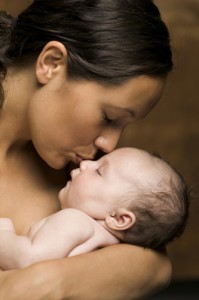Acupuncture to treat Infertility and Women’s health. Located in convenient King of Prussia and serving the great Philadelphia area including the Main Line, West Chester, Wayne, Phoenixville, Blue Bell, Royersford, Collegeville, Norristown, Bryn Mawr, Malvern, Paoli and beyond!
What types of Infertility can Acupuncture and Traditional Chinese Medicine Treat?
Acupuncture and Traditional Chinese Medicine (TCM) can treat infertility due to hormonal imbalances, blockages in the fallopian tubes, irregular menstruation, and also patients who are determined to have no cause for their infertility. Acupuncture and TCM is also used in conjunction with Western Treatments such as injectables, IUI and IVF. There have been a multitude of research studies in the past decade showing how Acupuncture and TCM increase the success rate or conventional infertility treatments. Also, the stress relief commonly associated with Acupuncture treatments has a direct link to fertility because stress can reduce the function of the hypothalamic-anterior pituitary- ovarian axis, thus leading to infertility.
How does Acupuncture and TCM help treat infertility?
Acupuncture smoothes and balances the flow of energy (called Qi) and blood in the body. When the Qi and blood are blocked and not flowing smoothly symptoms such as endometriosis, clots, blocked tubes, and premenstrual cramping and pain, headaches, and circulation problems can occur. Also, when there is a deficiency of Qi and blood symptoms such as lack or period, miscarriage, lack of ovulation and irregular hormonal balance occurs. Acupuncture works by directing the Qi and blood to flow smoothly and in the right places and the right times. It helps to restore your body back to its natural balanced self. Acupuncture increases blood flow to the uterine lining, tubes and ovaries, allowing the endometrium to be highly receptive to a fertilized egg. Also, the egg quality may be enhanced.
Are there any side effects?
There are almost no side effects related to acupuncture, which is why it is so commonly used. The most common side effect is that there will be a bruise where a needle was inserted and it usually goes away within 1-3 days. Most people feel relaxed and grounded after a treatment, and right away report improved sleep, less anxiety and feeling more relaxed overall.
How often are treatments received?
After the initial intake session, treatments are received about once a week, though additional treatments may be done to cater to an IVF cycle or other times in the menstrual cycle as needed.
Patients usually come in for treatments, once a week, for 2-3 menstrual cycles or until they become pregnant. Once a patient does conceive, acupuncture can still be helpful through the first trimester to help against miscarriage and help with morning sickness and other symptoms.
What is the recommended treatment protocol during an IVF cycle?
It is recommended, for optimal results, to come in at least 6-8 prior to starting an IVF cycle, preferably 2-3 menstraul cycles. If you are closer to your IVF cycle than 6-8 weeks there are some short term benefits that you can receive from the treatments as well. If you have any specific questions, please contact us to discuss your needs.
What types of patients come to your office?
We see a variety of women, ranging in ages from 25 on up to 49 years old. About half of the patients are doing IVF, while the other half are either doing acupuncture or using acupuncture in conjunction with non-IVF fertility treatments such as IUIs and injectables or clomid.
Many women come for unexplained infertility, the other most commonly seen conditions are Polycystic Ovarian Syndrome (PCOS), Endometriosis, irregular cycles, age related infertility, elevated FSH, premature ovarian syndrome, poor ovarian reserve, thin uterine lining, and anovulation.
We have seen women using surrogates, gestastional surrogates, women using donor eggs or donor sperms, donor embryos, etc. Pretty much the whole spectrum.
What about men?
We have seen men in our office for male factor infertility. Most commonly low sperm count, poor morphology or poor motility. Most men have had significant improvement after 3-4 months of treatments and many were able to conceive naturally following their course of treatments.



